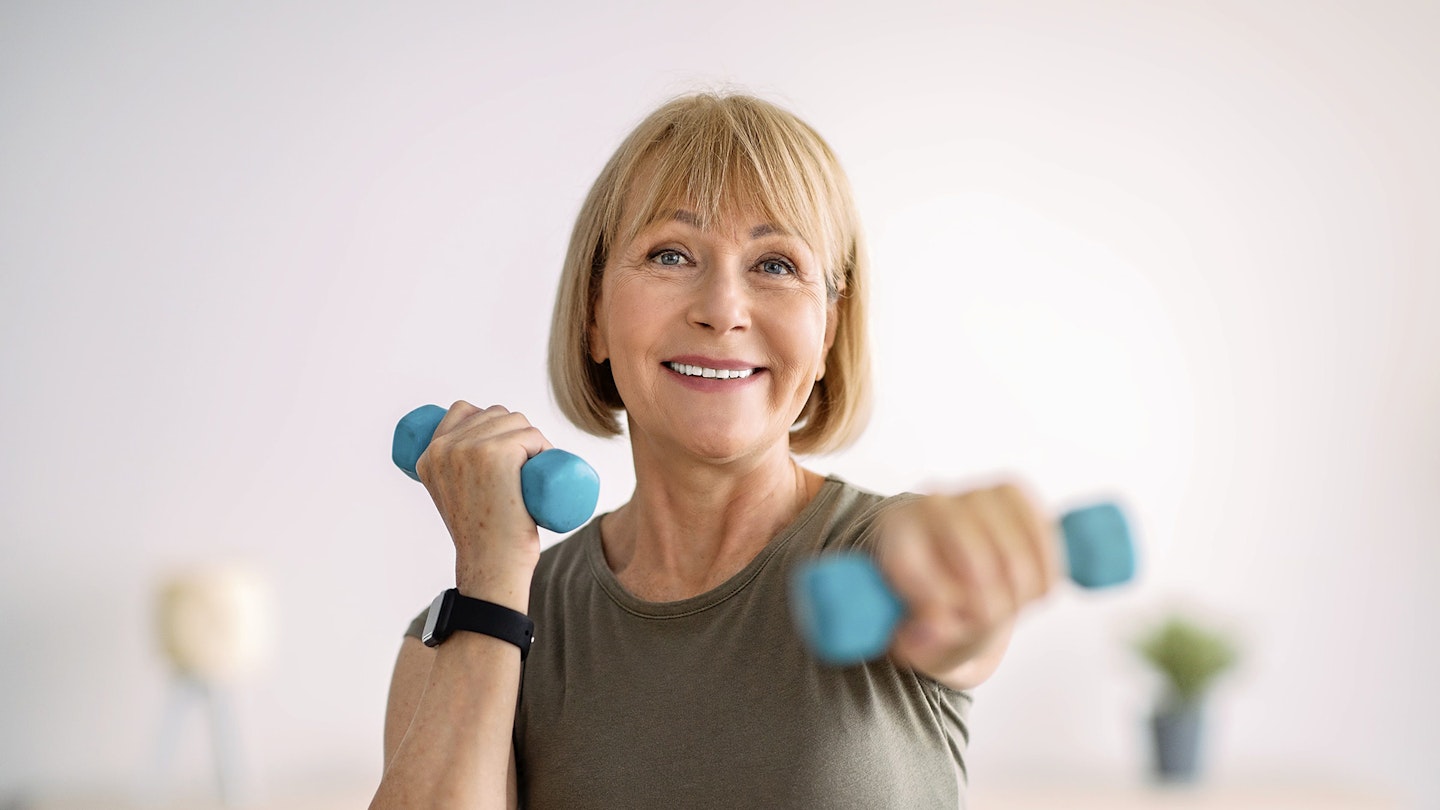Follow our expert tips and advice to keep yours stronger for longer
Our bones are alive and constantly changing. However, we rarely think about looking after them until we break one.
Research from the Royal Osteoporosis Society (ROS) — the UK’s largest charity dedicated to improving bone health and beating osteoporosis — shows that two-thirds of adults have never considered they might be at risk of poor bone health. What’s more, 57 per cent have never considered their bone health at all — something we might want to change — as understanding bone health can help to keep ours healthier for longer.
Sarah Leyland, clinical Advisor at the ROS, says: ‘Osteoporosis is a condition that weakens bones, causing them to break more easily. It’s common, with 3.5 million people living with it in the UK. One-in-two women and a fifth of men over 50 will break a bone because of it.
‘However, it’s not an inevitable part of getting older. There are many steps we can take to make a positive impact on our bone health and reduce the likelihood of broken bones due to osteoporosis.’
Reduce your risk
‘The structures inside our bones are constantly being broken down and rebuilt, which helps strengthen them and repair weaker areas,’ says Sarah. ‘From our mid-30s onwards, however, our bones begin to break down more quickly than they can be rebuilt, so they gradually start to get weaker, which can make them more likely to break.
‘This happens to everyone. But, for women who go through the menopause, this process happens more quickly, because bones lose strength at a faster rate when oestrogen decreases.’
As well as ageing and menopause, certain medical conditions and medications, such as steroids, can increase a person’s risk of osteoporosis and fractures. A family history of osteoporosis, or previous broken bones that happened without trauma or force, are also important.
Lifestyle also plays a vital role. ‘Low body weight, smoking and excessive alcohol intake can be risk factors for osteoporosis and fractures,’ says Sarah.
Improve your bone health
A healthy, balanced diet with adequate calcium, enough vitamin D and weight-bearing and muscle-strengthening exercise are all key.
Sarah says: ‘Bones stay strong if you give them work to do. For exercise to be most effective, you need to combine weight-bearing exercise with impact.’
As a guide, you are weight-bearing when you are standing, with the weight of your whole body pulling down on your skeleton.
Weight-bearing exercise with impact involves being on your feet and adding an additional force or jolt through your skeleton. This could be anything from walking to star jumps.
‘When your muscles pull on your bones it gives your bones work to do,’ says Sarah. ‘Your bones respond by renewing themselves and maintaining or improving their strength. As your muscles get stronger, they pull harder, meaning your bones are more likely to become stronger.’
Mixing up your activities is recommended. Try different movements, directions and speeds, for example through dancing. Short bursts of activity can be best.
Exercising outdoors is particularly beneficial as it boosts levels of vitamin D — the sunshine vitamin.
Sarah says: ‘Vitamin D helps your body absorb and use calcium, which gives your bones their strength and hardness.’
We can also support our bone health through our diet, making sure we get enough calcium. Good sources include green leafy vegetables, almonds, sesame seeds, dried fruit, pulses, fortified soya and nut drinks, and some types of soya protein (tofu processed with calcium).
There are other vitamins, minerals and nutrients that are vital to help your bones stay healthy and strong.
Sarah says: ‘Eat a healthy, balanced diet that includes foods from the four main food groups — fruit and vegetables; carbohydrates like bread, potatoes, pasta and cereals; dairy and alternatives, and proteins such as beans, eggs, fish and meat.’
